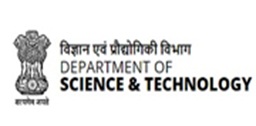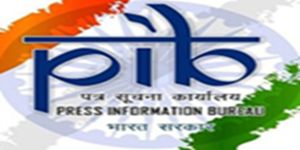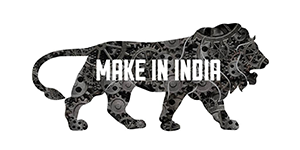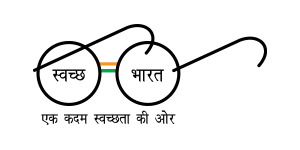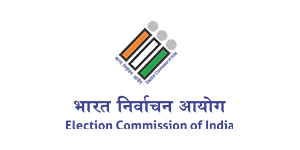Implementing Agency: - APRINS, NGO, Guwahati




The Handloom sector is a reflection of the glorious cultural heritage of our country. It is an important source of livelihood in rural areas. Assam has been known as the “land of weavers” and the weaving skills of Assamese women were praised by Mahatma Gandhi himself.
The project tilted as Development of an ‘Artistic Textile Cluster-Introduction to appropriate technology and training on skill up-gradation’, has been supported by NECTAR, for the revitalization of innovative product and it has been implemented in covering two pockets of Sivasagar and Dibrugarh district of Assam.
Here are the stories of four women from Sivasagar and Dibrugarh who have worked hard and found success in the handloom sector and are presently using at as a source of income. These women were aided by NECTAR on their road to self-sustenance.




Outcome and People Benefited: -
Mrs. Debajyoti Borah, from Bharalua village of Sivsagar after receiving wooden loom from NECTAR under the training program has been able to increase her monthly income from 3000 to 8000.Mrs. Rajashree Saikia, from Na-Katani Kalugaon of Sivasagar district now weaves upto 3-4 gamochas in a day, earning her more than Rs. 7000/- monthly. She expressed her gratitude to the NECTAR for aiding her. Similar stories have been received from Mrs. Deepa Borah, Dibrugarh district and Mrs. Biporna Borah, Kharadhara village, Sivasagar district. They both were provided with wooden looms by NECTAR.
| Number and details of Beneficiary (please give details for Male population) | Direct | Others | SC | ST | OBC |
|---|---|---|---|---|---|
| Indirect | Others | SC | ST | OBC | |
| Number and details of Beneficiary (please give details for Female population) | Direct | Others | SC | ST | OBC |
| Indirect | Others | SC | ST | OBC | |
Implementing Agency:- Sanajing Sana Thambal Pvt. Ltd, Manipur
NECTAR has approved a project to Sanajing Sana Thambal Pvt. Ltd under the TOSS scheme with the objective to introduce technological intervention in terms of machinery into the eco-friendly production process and socially responsible manufacturing techniques ensuring balanced ecosystem and keeping tradition alive thereby promoting the traditional livelihood of the people especially women who live in and around the Loktak lake by providing training on extraction of lotus silk and its processing to produce lotus silk fabric. This will also promote women employment and contribute to solve the issues of microplastic from synthetic clothing by replacing it with plant-based fabric from lotus stem. The project also includes production of Lotus and Lily tea which possess high demand in various application due to its versatile medicinal properties like contributing to reduce the rising obesity rates and health issue related to weight gain




Implementing Agency: - Khankho-Lom Producer Company Ltd (KLPC Ltd), Churachandpur, Manipur
NECTAR has approved a project to Khankho-Lom Producer Company Ltd under the TOSS scheme with the following objectives:
With NECTAR’s support banana fibre was extracted successfully and various products like Handicrafts, Banana Chips, Fertilizers etc were developed. The PI was also awarded the Winner of MANAGE Samunnati – Agri Startup Awards 2022 for the state of Manipur.
- To provide required technological service including necessary product and design/processing support/quality control support and maintenance support locally.
- To generate pool of young entrepreneurs, not only in Churachandpur district but the entire state of Manipur, to produce unique products for the targeted customers, thereby generating employment opportunities.
- To promote and develop agro-handicraft livelihood and the business of the tiny agro-handicraft based processing units of the centre in to an ever-growing agro-handicraft hub in north eastern state of India through setting up a successful sustainable common facility centre having all modern facilities.
- To promote women’s employment: The production of handicraft is (after agriculture) the largest source of income among rural populations. Most handicraft industry is large arena of women’s employment. Women depend on these crafts for earning the income for their family.








Implementing Agency:- Udalguri Farmers Cooperative Society Ltd
NECTAR has taken up a project titled “Waste to wealth – Pineapple and Banana Fiber Extraction”, with the aim to convert waste of harvested banana and pineapple into eco-friendly and biodegradable fiber. It will provide livelihood opportunities to the community through generation of employment,and the value added products made would enhance the profitability of banana and pineapple farming.It will also minimize deforestation due to various wood/cellulose processing industries thus protecting our ecology and environment.
Outcome and People Benefited: -
With NECTAR’s technological intervention, it was possible to extract banana, pineapple fiber from the proposed raw materials with standard quality to be used for weaving attractive pieces of clothes, rugs, sarees etc. The banana water as by products is used as organic fertilizer. The project was officially inaugurated on 8th September 2022. An approximate of 40 people were provided direct employment and around 250 beneficiaries were indirectly employed under this project.
Implementing Agency:Assam Agricultural University, Jorhat
Assam Agricultural University, Jorhat, Assam survey and documentation of the traditional tea processing Technologies practised by different tribal communities of Assam and Arunachal Pradesh, biochemical and organoleptic evaluation of Phalap, Khilang Pat, Haleng etc. processed by these communities were covered under this project. As there is a strong demand of such specialty teas among a section of consumers all over the world, such traditional tea processing technologies can be popularized and disseminated among the small tea growers of this region through training and method demonstration. Small tea growers will be able to produce such teas in the form of a cottage industry.
Training and method demonstration on traditional tea processing technologies including some specialty tea like green tea, oolong tea, white tea etc. and exposure visits of small tea growers to tea processing units, marketing sector, broker house, blending and packaging units were also covered under this project. Training on FPC formation, brand and logo development, packaging, e-commerce were also given to the participants. These trainings would help these tea growers to sell their products in the market sector and earn a good income.
Outcome and Beneficiaries: -
With skill upgradation the tailors are able to enhance their monthly incomes. 32 women centres have gone through skill upgradation of which 20% are general. The machines from nectar will bridge the gap to make is a complete garment manufacturing unit for uniforms. As of now they are producing only for RKM, Sohra schools. The intervention will expand the capacities of tailors and weavers in terms of diversification and development.






Implementing Agency: - Riptrip,Manipur

NECTAR has supported an initiative by Ms. Padmini, proprietor of Riptrip, Manipur to turn ‘Charei Taba’ form of Pottery into an enterprise through technology intervention, The main objective of the project is to strengthen trade in cultural goods by organizing and converting this art into an enterprise offering sustainable livelihood will provide employment opportunities for decent work and promote local production. Cultural policies that promote preferential treatment in trade for locally produced goods contribute to reducing inequalities within and among countries. Traditional arts and crafts have an obvious correlation with climate action since it’s all about natural resource extraction and local materials. Innovation & technology intervention will improve output with a minimal technology intervention i.e by mechanizing the complete process. Also, it will help maintain the quality, reliability and thus making it profitable, boosting economic development and human well-being. Th Thus an economy promoting green economy Promote and support the use of eco- friendly biodegradable products will be created.

Outcome and People Benefited: -
Due to the technological interventions and mechanization with the support from NECTAR, the access to raw materials has improved. The use of technology has reduced physical labour and time spent in raw material procurement and preparation boosting productivity. This had led to increase in the production by value leading to a many fold increase in the direct monthly earning potential of the Artisans and with organized sales effort is has lead to better pricing.
The Loss per firing has been reduced from more than 50% to less than 14% per firing. The time consumed in raw materials processing by the artisans is also reduced to 1 day as against 7-10 days earlier. The only physical labour right now required for the artisans is in the rolling of the clay slabs. The monthly net productive days for each artisan have now increased to 26 days a month as against 10-11 days earlier. This itself represents a 2.5x increase in productivity. Finer products are now created with higher strength, durability and appeal.
The increased productivity and the reduced physical labour required coupled with finer better quality production with branding, potters will be able to improve their Socioeconomic situation due to increased incomes and recognition
| Number and details of Beneficiary (please give details for Male population) | Direct | Others | SC | ST | OBC |
|---|---|---|---|---|---|
| Indirect | Others | SC | ST | OBC | |
| Number and details of Beneficiary (please give details for women population) | Direct | Others | SC | ST | OBC |
| Indirect | Others | SC | ST | OBC | |
| 3 | |||||
| 22 | |||||
| 17 | |||||
| 10 | |||||
Implementing Agency: - M/s RT Network Solutions Pvt Ltd, Tripura
Agriculture in various forms has been the mainstay of livelihood in the North Tripura district in the state of Tripura. The district headquarters are located at Dharmanagar.

A perennial problem in this region is the high rural unemployment although the region is rich in natural resources which can provide sustainable alternative livelihoods through skill and technology development. This region is also prone to floods resulting not just damage to agriculture and livestock but also severely disrupting the income opportunities for the villagers. Thus value-adding a local resource and producing competitive products will generate sustainable employment in this region reducing its dependence on agriculture.

Globally, conventional disposable plates, made from Styrofoam, is a major source of toxicity and pollution. Each Kg of polystyrene plates produces 6 kgs of CO2 emissions. The current consumption patterns are unsustainable due to lack of green alternatives in the market. Producing eco-friendly alternatives to such expensive and harmful dishes and other utensils in this region has been recognised by NECTAR as a viable source of livelihood for the local community.
Thus, in RT Network Solutions Pvt Ltd (RTNS) the main objective is to produce and market this biodegradable disposable dinnerware made from the leaves of areca nut, which provides green alternatives to global customers and generates sustainable rural livelihoods locally.
More than 100,000 hectares of arecanut plantation in NE and more than 3000 micro enterprises producing arecanut plates can be promoted if only 30% of the available resources can be tapped. Although selling the arecanut for household income is a common practice in rural areas, yet the sheaths attached to the leaf is considered a waste. These sheaths can be utilised to make high quality green disposable dinnerware, by use of simple skills & technology. The disposable dinnerware made from arecanut sheaths have better dimensional stability besides being hygienic, compostable and microwave safe. Due to its qualities, it has a huge market in India and internationally.
Outcome and People Benefited:-
RTNS along with support from NECTAR, will provide a bridge between local rural communities having access to natural resources and global urban communities requiring sustainable alternatives for responsible consumerism by providing direct and indirect employment to around 300 people.
Implementing Agency:Ramakrishna Mission Ashrama, Sohra, Meghalaya
This project is to upgrade the infrastructure of Textile and fashion designing established by RKM. The intervention was initiated to impart training and employ girls/women from vulnerable backgrounds so as to ensure better livelihood opportunities. The mentioned project enables RKM to install generator, facilitate IT support for data management and training purposes, procure supporting machinery to set up the industrial sewing machine centre, upgrade and repair the old metal looms. The prime objective of upgrading the looms is to improve quality and productivity of the fabric being produced by way of fixing certain additional attachments/kits and enable them to face the competition in domestic and international markets. As of now, the portable generator and IT system has been procured. The generator will support uninterrupted electricity supply and the IT support would maintain the logistic data and act as a source to research crucial processes in textile and fashion designing while imparting training and during production. The Upgradation of looms has started in collaboration with the Sericulture and Weaving Department of Meghalaya. With skill upgradation the tailors would be able to enhance their monthly income.



Implementing Agency: - NECTAR as proposer and DAG as IA of the project


Asharikandi (Madaikhali) is a village in Debitola development block in Dhubri district of Assam. It is one of the largest clusters of Terracotta and Pottery in India where both male and female, young and old of 130 families present, shape and create a range of fascinating terracotta and pottery items. The special soil HIRAMATI is the soul of this craft which is abundantly available in surrounding areas. The potters use boats as their means of transportation, as the village is situated on the bank of the river Gadadhar which is a tributary of the mighty Brahmaputra. This gives the place an advantage for marketing network with the major cities. In earlier times, the needs of the Jamindar (Royal) family, for the ware and utensils of everyday-use were in fact catered from this area.
Innovative and artistic skills, quality of Hiramati, climatic conditions and age-old tradition of Kumbhakaras (potters) of Asharikandi, have enabled to retain a separate identity of Asharikandi - style of Terracotta. In the year 1989, Late Sarala Bala Devi, was awarded with the prestigious National Award on Terracotta craft, for her excellent innovative masterpiece HATIMA doll- Female figure with a child on her lap which bought much repute for the Asharikandi- style of Terracotta.Terracotta and pottery work is now the main profession of the people of Asharikandi. Earlier they used to sell their products like pitchers and other utensils and terracotta products like Hatima Doll, Ainar Horse, Elephant, Rhino etc. in the nearby towns and villages. They used to also sell idols of God and Goddesses on the occasions of local festivals and fairs. But now they also go out for selling their terracotta products on the occasions like trade fair, and sale cum exhibitions organized by the various Govt. Departments and NGOs. Resellers of terracotta and pottery items have also started to come to the artisans' cottages and purchase the goods direct from the village.
Despite holding an age-old tradition, the village is however facing many challenges due to which present generation is having limited interest in accepting it as a profession. NECTAR, an autonomous body under the Department of Science & Technology, Government of India, conducted assessment of the challenges and possible solutions thereof, through technology intervention. One of the major challenges which are faced is drudgery in manual aging of the clay, one of the key steps which control the workability of clay for fabrication of green clay bodies. It affects both the quality and quantity of processed clay leading to an unexpectedly low productivity. Additionally lack of homogeneity in such manually processed clay creates lots of defects in green mass ultimately increasing the rate of rejection of final products. The technology solution of clay processing / aging is well achieved by pug milling which can be operated either electrically or manually. In such situation, a centralized processing facility is planned to be set up, which would like to supply processed clay to all the individual moulding or fabrication units.

Secondly, a majority of the items are being fabricated or shaped by hand which is very slow process. As a result, both the productivity and consistencies in quality are drastically affected. In such situation, a mechanized moulding practice is introduced to overcome above draw backs especially for simple or regular items.
The assessment also revealed that an age-old firing kiln are being used with negligible insulation, and natural draught system seems to be more realistic. In order to improve the firing efficiency, a closed chamber was installed with proper insulating wall with effective heat circulation with proper design of draught mechanism.

Outcome and People Benefited: -
The initiative taken in collaboration with NECTAR, improved both the quality of firing and fuel efficiency which ultimately leads to reduced operational cost with more profitability. Quality of firing is better as reflected from characteristic color and sound of fired body. Effective firing cycle time reduced to 22 hrs which is required minimum 72 hrs for conventional firing, so the number of firing cycle increases nearly 3 times, the Operating cost is lower @Rs.3600 compared to the conventional @Rs.6000/cycle.

Therefore, the cost benefit analysis confirmed that there is a 50% reduction in cost of production. The annual profit margin per cluster is more than 4.5 times higher. Also, in terms of environment benefit after technical intervention around 1386 tonnes of wood will be saved, which leads to reduction of 2495 tonnes of CO2 in the environment
| Number and details of Beneficiary | Direct | Others | SC | ST | OBC |
|---|---|---|---|---|---|
| Indirect | Others | SC | ST | OBC | |
| 1000 | |||||
| 3000 |
The success of pilot project by Nectar has inspired more villagers to make use of the scientific innovations and even small interventions and many of them are looking at this trade with new found zeal, especially the youth. To take this success story to the next level a project proposal with the title “Improving Sustainability of Traditional Terracotta and Pottery Business in Asharikandi” was submitted to SEED Division of Department of Science and Technology, Govt. of India, by NECTAR as the implementing agency, which has been approved with a total budget of Rs. 2,81,08,381 for a period of 2 (two) years. The major targets this time around would be to-
- To construct a CFC and a display centre in the village
- To provide the updated machinery for mass production of high demand items.
- To improve and empower the citizens with the village for improve the quality of the product.
- To improve packaging quality and provide market linkage of goods.
- Select members for training and provide advanced training on pottery from CGCRI, Khurja.
Implementing Agency: - Simang Collectives Pvt. Ltd.
NECTAR has taken up a project titled “Technology intervention and upgradation in Biodegradable Yoga Mat production” with Simang Collectives Pvt. Ltd, a social enterprise from Guwahati. The aim of this project is to promote production and use of natural fibre-based eco-friendly yoga mats made from locally available water hyacinth. In this project, fiber extracted from water hyacinth is woven on the traditional Assamese Loom, in different combinations of techniques, materials and tools to achieve a high quality 100% biodegradable and compostable Yoga Mat, which offers great comfort to the users.
Handwoven Moorhen Yoga Mat, an initiative by the Indigenous Fishing Community Using Natural Materials from Deepor Beel Wetland, for the Conscious Souls. Simang, is a collective led by 6 girls from the fishing community living in the fringe of the Deepor Beel Wildlife Sanctuary, whose families are directly dependent on the wetland for their survival. NECTAR took an innovative initiative to involve the entire women community associated with Simang to create wealth from water hyacinth plants, which are generally considered as a nuisance to the ecosystem and waste and therefore, unwanted. Today 38 women from 3 fringe villages (Keotpara, Notun Basti and Borbori) work with them, 6 days a week to produce Yoga Mats using natural fiber of water hyacinth.
Water Hyacinth is a very problematic plant at Deepor beel (freshwater Lake), disturbing the endemic aquatic ecosystem as it is highly invasive. Considering all aspects of water hyacinth’s behavioural properties and the functional requirements of a product like a mat, a handwoven 100% biodegradable and 100 % compostable mat to be used for doing Yoga was ideated as a means of providing multiple ecological and social benefits such as improvement of the aquatic ecosystem of the wetland through removal of water hyacinth, sustainable production of utility products with community engagement and generation of livelihood for indigenous communities to become completely ‘ATMANIRBHAR’.




The Yoga mat comes in a cotton canvas cloth bag where no zip or metal closures are used. The bag has adjustable strap and closures effectively designed to be in sync with biodegradability.

The Moorhen YOGA MAT, named after Kam Sorai (Purple moorhen, a resident bird of Deeporbeel Wildlife sanctuary), a product of SIMANG Collectives supported by NECTAR, will contribute significantly towards the environmental conservation and sustainability of Deepor Beel of Assam and will generate livelihood for the indigenous women in that region
Outcome and People Benefited: -
With NECTAR’s technological intervention, the process of drying of water hyacinth fiber is mechanized using appropriate drying technology. Through this project, NECTAR has also upholded the message of ‘Vocal for Local’ by enhancing capacity and confidence of the local artisans, mainly women and girls of weaker sections such as schedule caste. This project has provided direct liveable continuous employment to up to 70 women from the indigenous community of Deepor beel Wildlife sanctuary, a famous wetland designated as a Ramsar Site located near the Guwahati City. The villagers are now able to produce 1,000 handwoven yoga mats made of water hyacinth per month.
The benefits from this project have provided them with alternative sources of livelihood and thereby reduce the pressure on the resources of the wetland, which has helped in conservation and sustainable management of the wetland and its ecosystems. The project has also created the scope of converting waste to wealth.
| Number and details of Beneficiary (please give details for Male population) | Indirect | Others | SC | ST | OBC |
|---|---|---|---|---|---|
| Number and details of Beneficiary (please give details for women population) | Direct | Others | SC | ST | OBC |
| 20 | |||||
| 30 | 0 | 0 |
Skill and entrepreneurial development of vulnerable women in Manipur through weaving
NECTAR has supported a group based in Manipur for skill and entrepreneurial development of vulnerable women in Manipur through weaving. Group was formed to help women whose lives have been changed dramatically in conflicts caused by arms and weapons. More than 300 villages are covered under this program and over 1000 women are getting financial assistance for small scale entrepreneurial work. Women are involved in work of weaving, silk reeling, bamboo crafts manufacturing etc.
NECTAR has supported 30 looms and accessories and 1500 kg yarn.
The project has following deliverables/ outcomes:
- Skill up gradation of more than 300 women
- Completion of order of supplying 3000 fabrics of order received from Fabindia
The project has following deliverables/ outcomes:
- Skill up gradation of more than 300 women
- Completion of order of supplying 3000 fabrics of order received from Fabindia


Women Engaged in Weaving Activity

Looms Supported By NECTAR
Implementing Agency : Sunika Enterprise, Nikhekhu Village, Niuland, Nagaland
Funded Amount: ₹19,06,050.00
Aims and Objectives:
- To Help the Farmers Grow with the opportunity and offer for a rightful price.
- To Create Opportunities for The Unemployed especially the youth.
- To Give A Rightful Wages To The Daily Wagers.
- To meet the Demand for the supply of tea to the People.
- To Explore the Availability of Herbs and Spices in the region to Other States/Country through blended tea.
Type of Intervention :Technology intervention and use of new machines like panning machine, BSD Dryer, Trough fan and blender machines to increase the production of tea from 70kg to 350kg per month.
Outcome of the Project:
- Products produced: Blended tea with various blends of herbs and spices through the promoters’ knowledge and experience
- Beneficiaries : There are 4 (male) direct beneficiaries, 10 Indirect Beneficiaries (9 Male, 1 Female). All these belongs to Scheduled Tribe.
Page Last Updated : 04-07-2025 - 22:05






